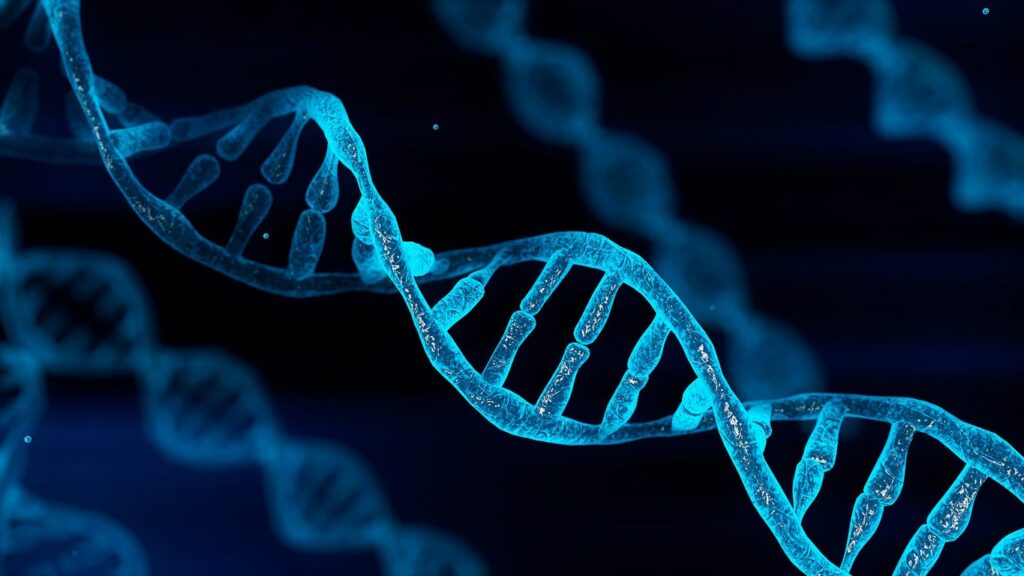Leaning Oak Frenchies
Color and Health Addressed
French Bulldogs are beloved companion dogs known for their distinctive appearance and charming personalities. Behind their adorable features and unique traits lies the complex world of DNA. In this comprehensive blog post, we will delve into the DNA of French Bulldogs and explore how it influences their breeding. By understanding the genetic makeup of these dogs, breeders and enthusiasts can make informed decisions to promote the health and well-being of this cherished breed.

French Bulldog DNA Testing
One of the essential tools available to breeders is DNA testing. By analyzing specific genes and markers, these tests provide valuable insights into a French Bulldog’s genetic composition. There are various DNA tests designed for French Bulldogs, each targeting different aspects of their health and traits. Some commonly used DNA tests include
-
Health Panel Testing: These tests screen for genetic diseases and conditions that French Bulldogs may be prone to, such as degenerative myelopathy, polycystic kidney disease, and more.
-
Coat Color Testing: DNA tests can identify the genetic variants responsible for the various coat colors observed in French Bulldogs, including black, fawn, brindle, and pied.
-
Parentage Testing: By comparing the DNA profiles of a French Bulldog and its alleged parents, breeders can confirm the dog’s parentage with certainty.
-
Genetic Diversity Testing: These tests assess the genetic diversity within a breeding population, helping breeders make informed decisions to prevent inbreeding and maintain a healthy gene pool.
Genes Affecting French Bulldog Characteristics

French Bulldogs possess a range of genes that contribute to their unique characteristics. Understanding these genes can shed light on the traits exhibited by the breed. Here are some key genes associated with French Bulldogs:
-
Canine Multifocal Retinopathy (CMR): Canine Multifocal Retinopathy is an inherited eye disorder that affects the retina, leading to vision impairment. It is caused by mutations in the BEST1 gene. CMR testing helps identify French Bulldogs carrying these mutations, enabling breeders to make informed decisions to avoid breeding affected individuals and minimize the risk of passing on the condition.
-
Degenerative Myelopathy (DM): Degenerative Myelopathy is a progressive neurological disorder that affects the spinal cord. It causes hind limb weakness and paralysis over time. The DM test identifies mutations in the SOD1 gene, which are associated with this condition. By testing breeding dogs for DM, breeders can prevent the transmission of the disease and promote healthier litters.
-
Juvenile Hereditary Cataract (JHC): Juvenile Hereditary Cataract is an inherited condition that causes the lens of the eye to become cloudy, leading to vision impairment. Various genes can be involved in JHC, including ELOVL4 and HSF4. Genetic testing for JHC helps identify French Bulldogs carrying the associated mutations, allowing breeders to avoid breeding affected individuals and reducing the occurrence of cataracts in the breed.
-
Hyperuricosuria: Hyperuricosuria is a condition characterized by elevated levels of uric acid in the urine, which can lead to the formation of urinary stones. It is caused by mutations in the SLC2A9 gene. Genetic testing for hyperuricosuria identifies affected French Bulldogs, enabling breeders to make informed breeding decisions and reduce the risk of passing on the condition.
-
C3 (Creatine Deficiency): C3, also known as Creatine Deficiency, is an inherited metabolic disorder that affects the brain and muscles. It is caused by mutations in the GAMT gene. Testing for C3 helps identify French Bulldogs carrying these mutations, allowing breeders to avoid breeding affected individuals and reducing the risk of passing on the disorder.
Coat Color and Patterns
French Bulldogs exhibit a wide array of coat colors and patterns, which are determined by specific genes. Let’s explore some of the key genes involved:

-
Eumelanin Genes: The presence of the MC1R gene determines whether a French Bulldog’s coat will be black or another color. Variations in this gene control the production and distribution of eumelanin, the pigment responsible for black and dark coat colors.
-
Dilution Genes: The B locus genes influence coat color dilution in French Bulldogs. The “bb” dilution gene acts on black to produce chocolate/liver, while the “dd” gene dilutes black to create blue/grey.
-
Agouti Signaling Protein Gene (ASIP): The ASIP gene regulates the distribution of pigments in the coat and affects brindle patterns in French Bulldogs. Different variants of this gene determine the intensity and pattern of brindling.
-
Piebald Gene: The piebald gene is responsible for the white spotting patterns observed in French Bulldogs. Variations in this gene influence the extent and distribution of white markings.
Breeding Considerations
Understanding French Bulldog DNA is crucial for responsible breeding practices. Here are some key considerations:
-
Health Testing: DNA testing for known genetic diseases helps identify carriers and affected individuals. Responsible breeders should screen their breeding stock to minimize the risk of passing on inherited conditions.
-
Genetic Diversity: Maintaining a diverse gene pool is essential to prevent the accumulation of detrimental genes and reduce the risk of health issues. Regular genetic diversity testing can guide breeders in making informed breeding choices.
-
Coat Color Goals: Breeders should carefully select breeding pairs to achieve desired coat colors and patterns, while considering the health and genetic diversity of the offspring.
-
Ethical Breeding: Breeders must prioritize the overall well-being of the breed by avoiding excessive inbreeding, promoting genetic diversity, and adhering to breed standards.
Understanding the intricacies of French Bulldog DNA is crucial for breeders and enthusiasts alike. DNA testing offers valuable insights into health risks, coat colors, and genetic diversity. By using this knowledge responsibly, breeders can make informed decisions to preserve the breed’s health, temperament, and physical traits. Additionally, awareness of specific genes and their impact on French Bulldog characteristics empowers breeders to work towards enhancing the breed’s well-being while preserving its unique charm. With careful attention to DNA testing and responsible breeding practices, we can contribute to the longevity and vitality of the beloved French Bulldog breed.
Leaning Oak Frenchies
TEL: +1 479-970-0261
Leaning Oak Frenchies is proudly powered by WordPress